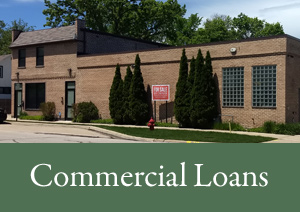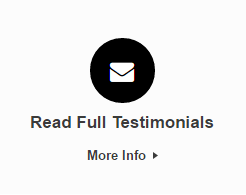Post
Self-Employed Mortgage vs. Traditional Mortgage: Which Is Smoother?

Navigating the mortgage process can be a daunting task, especially for those who are self-employed. As more people embrace the flexibility of self-employment, understanding how self-employed mortgages compare to traditional ones becomes crucial. This article will help you explore the differences and figure out which option might be smoother for you.
Understanding Mortgages
A mortgage is a loan used to purchase a home, where the property itself serves as collateral. For many, securing a mortgage is a critical step in achieving homeownership. Mortgages come in various forms, but the two we’ll focus on are traditional mortgages and self-employed mortgages.
Traditional Mortgages
Eligibility Requirements
For traditional mortgages, lenders look for a stable employment history. They typically require proof of income through documents like W-2s and pay stubs, along with a good credit score. Lenders prefer borrowers who have worked at the same job or within the same industry for a couple of years.
Documentation Needed
When applying for a traditional mortgage, you’ll need to provide employment verification, financial statements, and proof of income. Lenders use these documents to assess your ability to repay the loan.
Application Process
The application process for a traditional mortgage involves several steps:
- Filling out an application.
- Providing the necessary documentation.
- Undergoing a credit check.
- Waiting for the lender’s approval.
This process can take a few weeks to complete.
Pros and Cons
Traditional mortgages come with several benefits, such as potentially lower interest rates and straightforward qualification criteria. However, the process can be challenging if you have a less stable job history or lower credit score.
Self-Employed Mortgages
Eligibility Requirements
For self-employed individuals, the eligibility requirements are slightly different. Lenders look for income verification through tax returns (usually the last two years), business financial statements, and a solid credit score.
Documentation Needed
To apply for a self-employed mortgage, you’ll need to provide tax returns, profit and loss statements, and bank statements. These documents help lenders assess the consistency and stability of your income.
Application Process
The process for self-employed mortgages includes:
- Filling out the application.
- Submitting extensive financial documentation.
- Undergoing a detailed credit check.
- Awaiting lender approval.
This process might take longer due to the additional scrutiny of income stability.
Pros and Cons
Self-employed mortgages offer flexibility for those with non-traditional incomes. However, they can be harder to secure due to stricter documentation requirements and potentially higher interest rates.
Key Differences Between Self-Employed and Traditional Mortgages
Income Verification
Traditional mortgages rely on W-2s and pay stubs for income verification, while self-employed mortgages depend on tax returns and business statements. This makes income verification for self-employed individuals more complex and time-consuming.
Stability of Income
Lenders perceive traditional employment as more stable, which can simplify the approval process. Self-employed borrowers must demonstrate consistent income, which can be challenging if their earnings fluctuate.
Documentation and Paperwork
Self-employed mortgages require more extensive documentation compared to traditional mortgages. The additional paperwork can slow down the process and make it more complicated.
Risk Assessment by Lenders
Lenders view traditional borrowers as less risky due to their stable income. Self-employed borrowers, however, are seen as higher risk, leading to more stringent scrutiny and potentially higher interest rates.
Interest Rates and Terms
Interest rates and loan terms may vary between traditional and self-employed mortgages. Self-employed individuals might face higher rates due to perceived income instability, while traditional borrowers often benefit from lower rates and more favorable terms.
Which Process is Smoother?
Application Complexity
Traditional mortgages are generally easier to apply for, especially if you have a stable job and straightforward financials. The process for self-employed mortgages can be more complex due to the need for detailed financial documentation.
Approval Likelihood
Approval rates for traditional mortgages tend to be higher due to clearer income verification. Self-employed individuals might struggle more with approval, especially if their income history is irregular.
Processing Time
Traditional mortgages typically have a shorter processing time because the documentation is straightforward. Self-employed mortgages can take longer due to the extensive review of financial records.
Flexibility and Adaptability
Self-employed mortgages offer flexibility in terms of income sources and financial documentation. However, traditional mortgages adapt more easily to stable, predictable income scenarios.
Borrower Experience
Borrowers with traditional employment often find the mortgage process smoother and less stressful. Self-employed individuals might face more hurdles, making the experience more cumbersome.
Tips for a Smoother Mortgage Process
For Traditional Mortgage Applicants
- Maintain a stable employment history.
- Keep your credit score in good standing by paying bills on time and reducing debt.
For Self-Employed Mortgage Applicants
- Keep thorough financial records and ensure your tax returns accurately reflect your income.
- Work on reducing any outstanding debt and improving your credit score.
- Consider consulting with mortgage professionals who specialize in self-employed mortgages for guidance.
General Tips for All Borrowers
- Shop around to compare rates and terms from different lenders.
- Get pre-approved to streamline the home buying process.
- Understand the specific requirements and expectations of your lender to avoid surprises.
Conclusion
Both traditional and self-employed mortgages have their own sets of challenges and benefits. Traditional mortgages are generally smoother for those with stable, predictable incomes, while self-employed mortgages require more extensive documentation and may take longer to process. Ultimately, the smoother option depends on your employment status and financial situation.
For personalized advice and expert guidance on navigating the mortgage process, whether you are traditionally employed or self-employed, reach out to 1st Eagle Mortgage. We’re here to help you find the best mortgage solution tailored to your needs.
No comments yet




